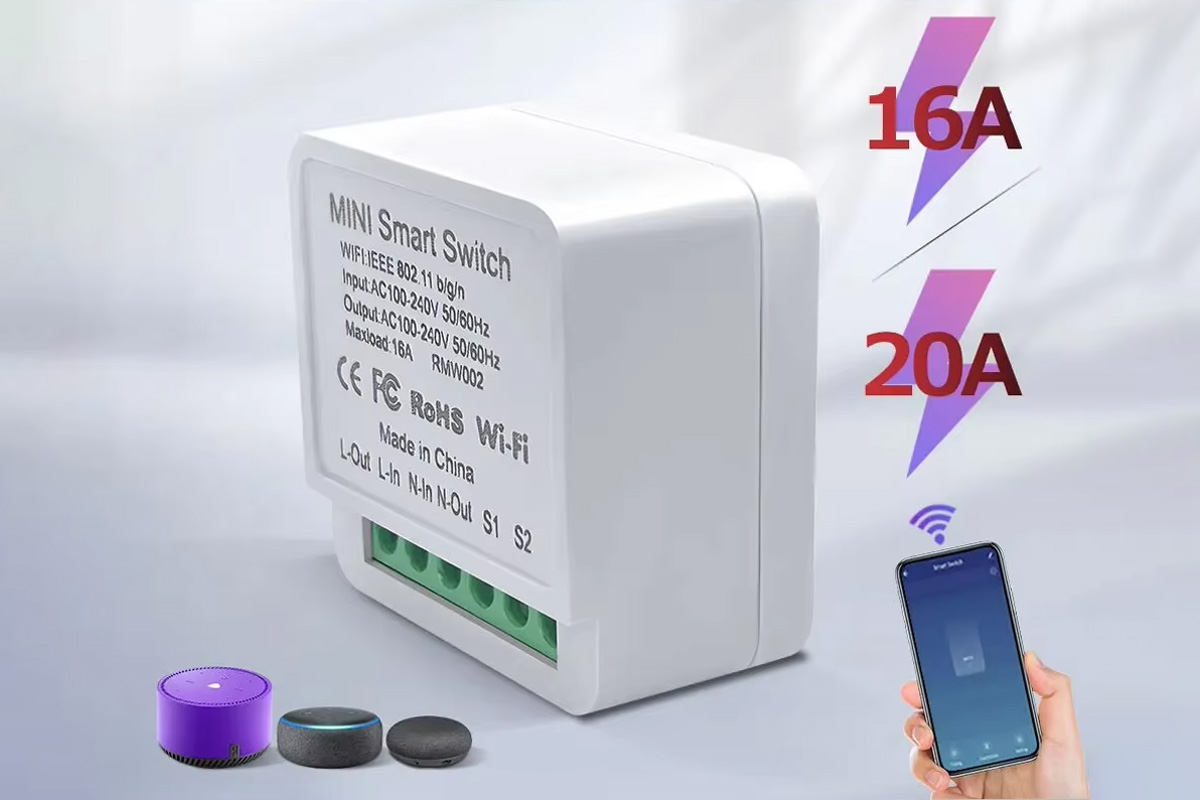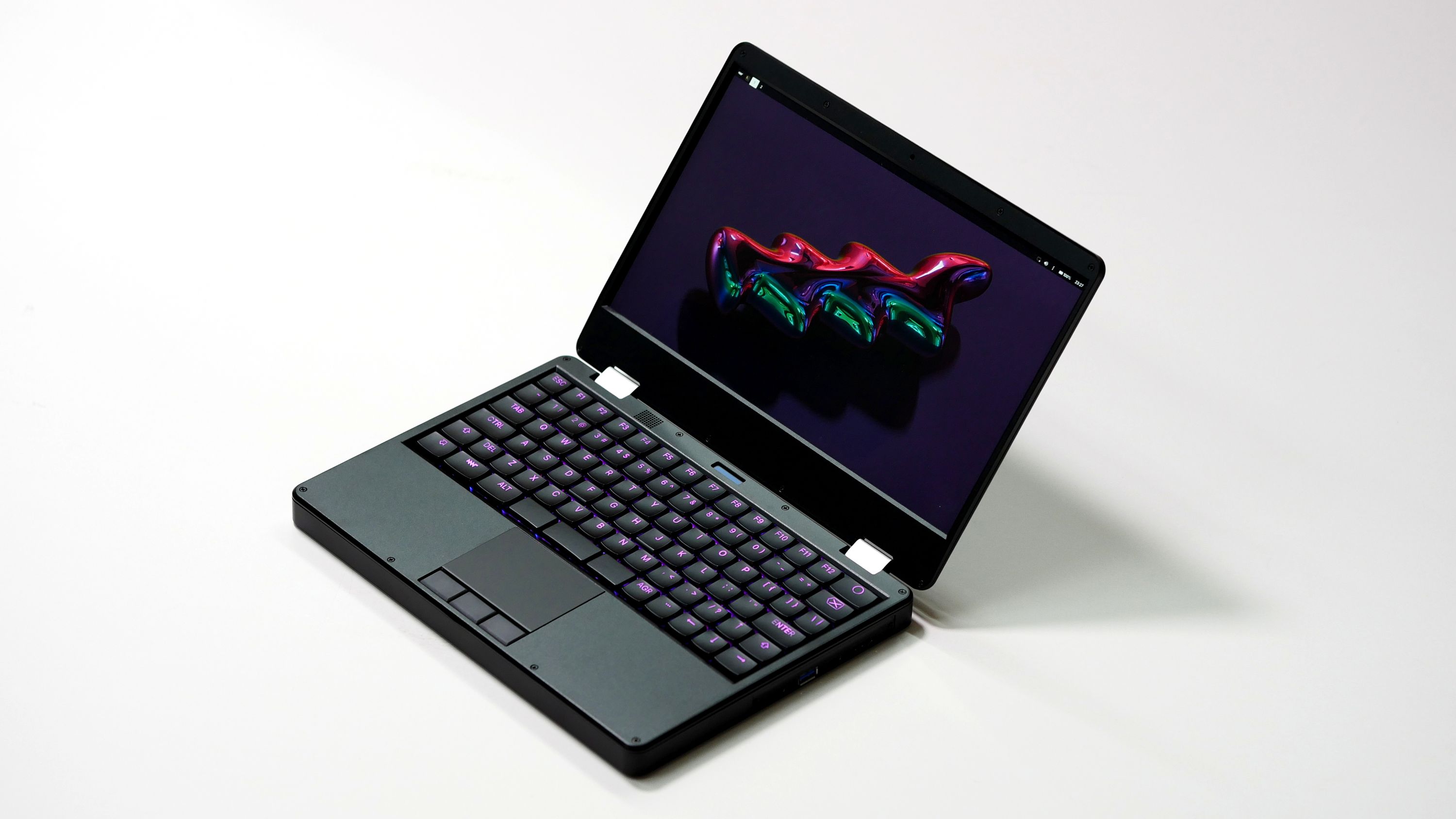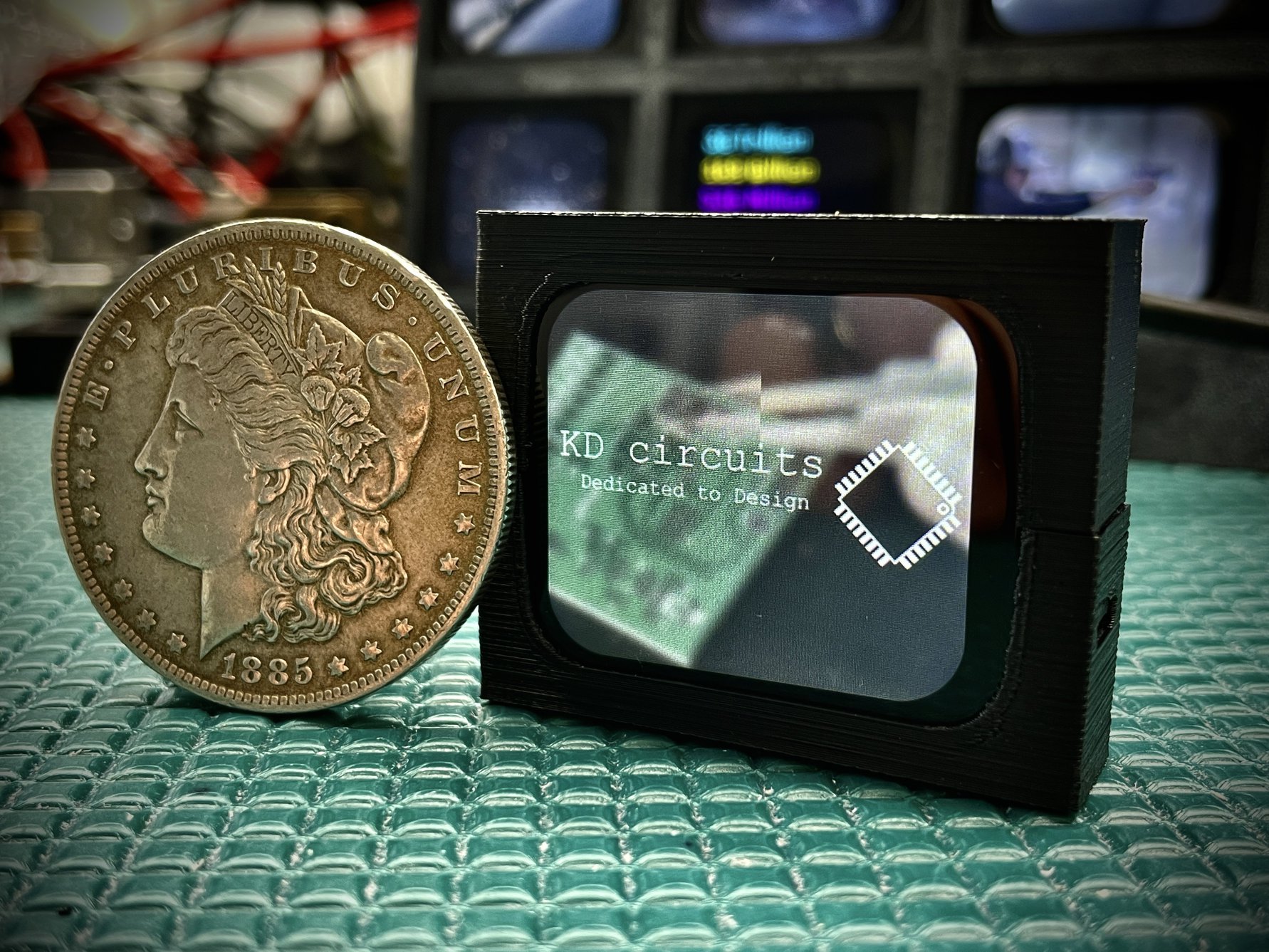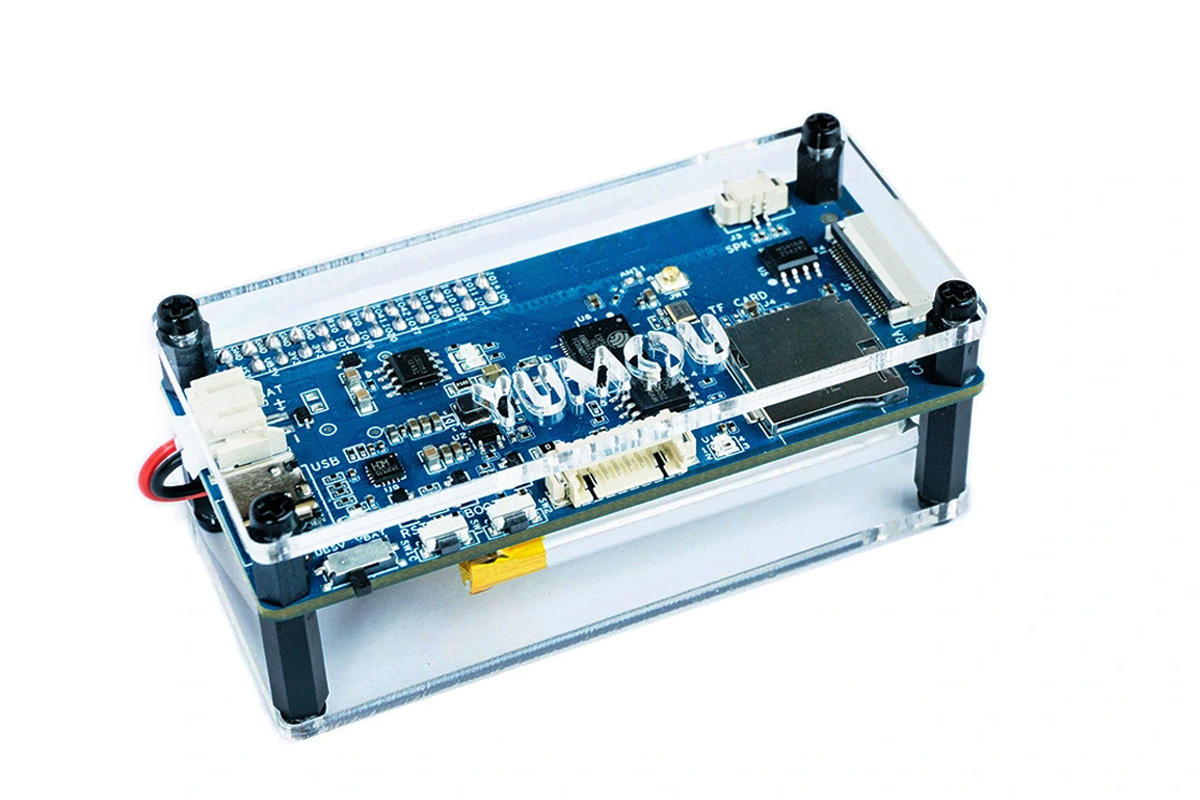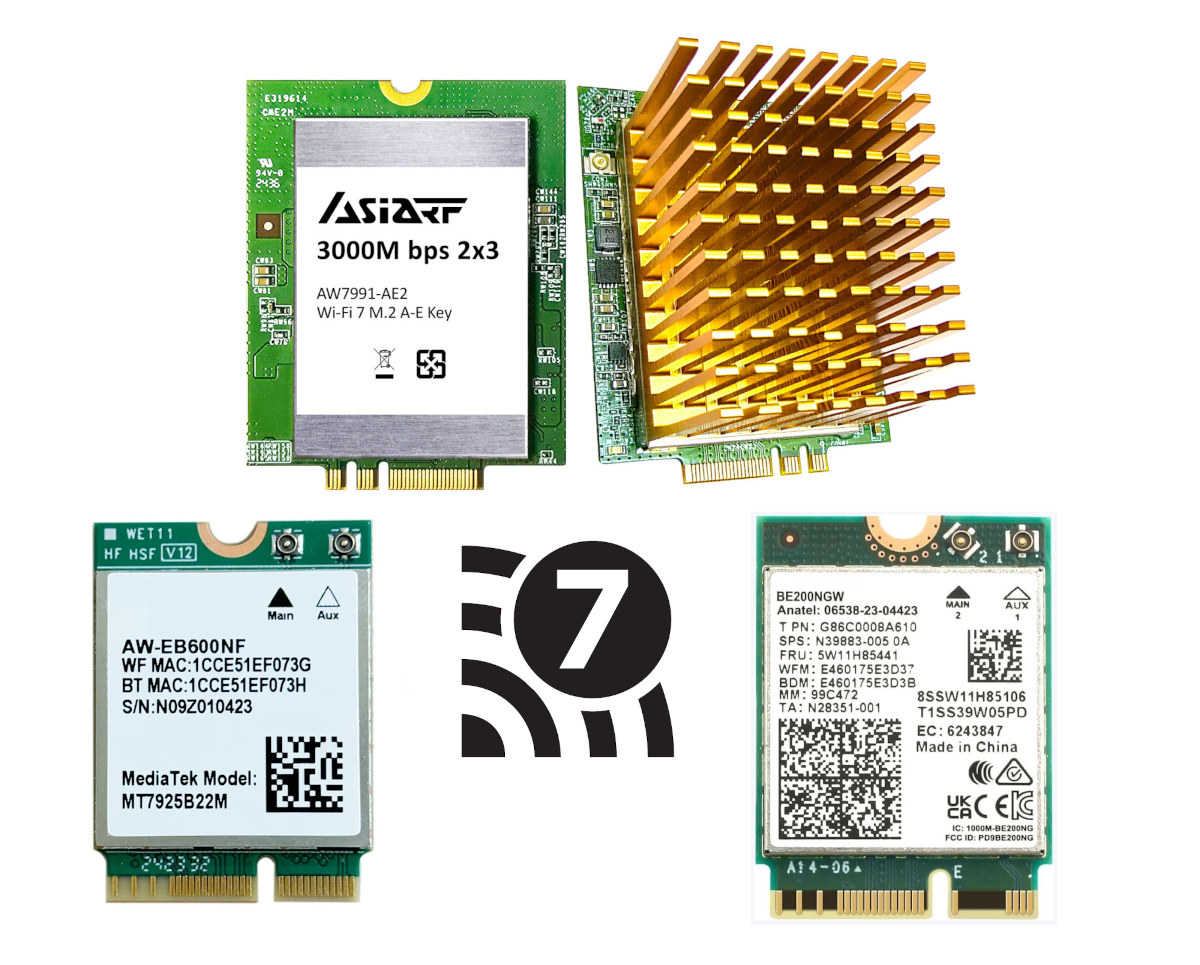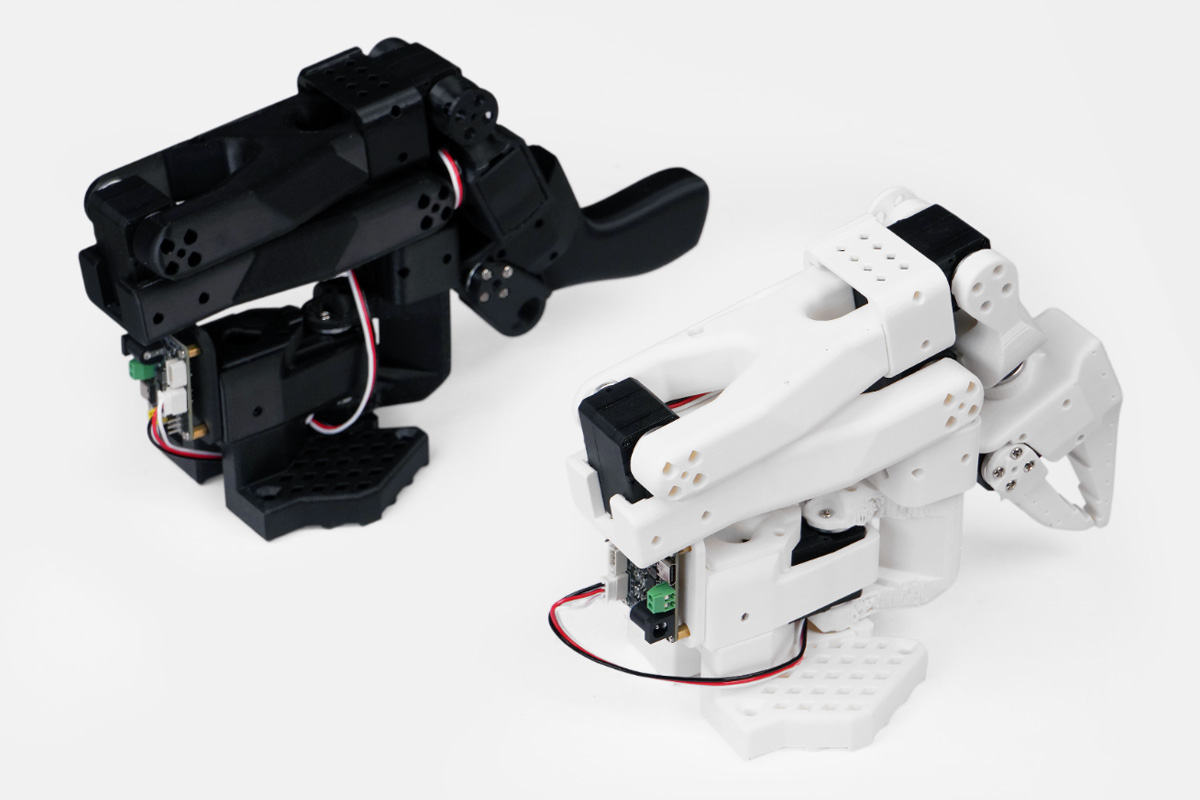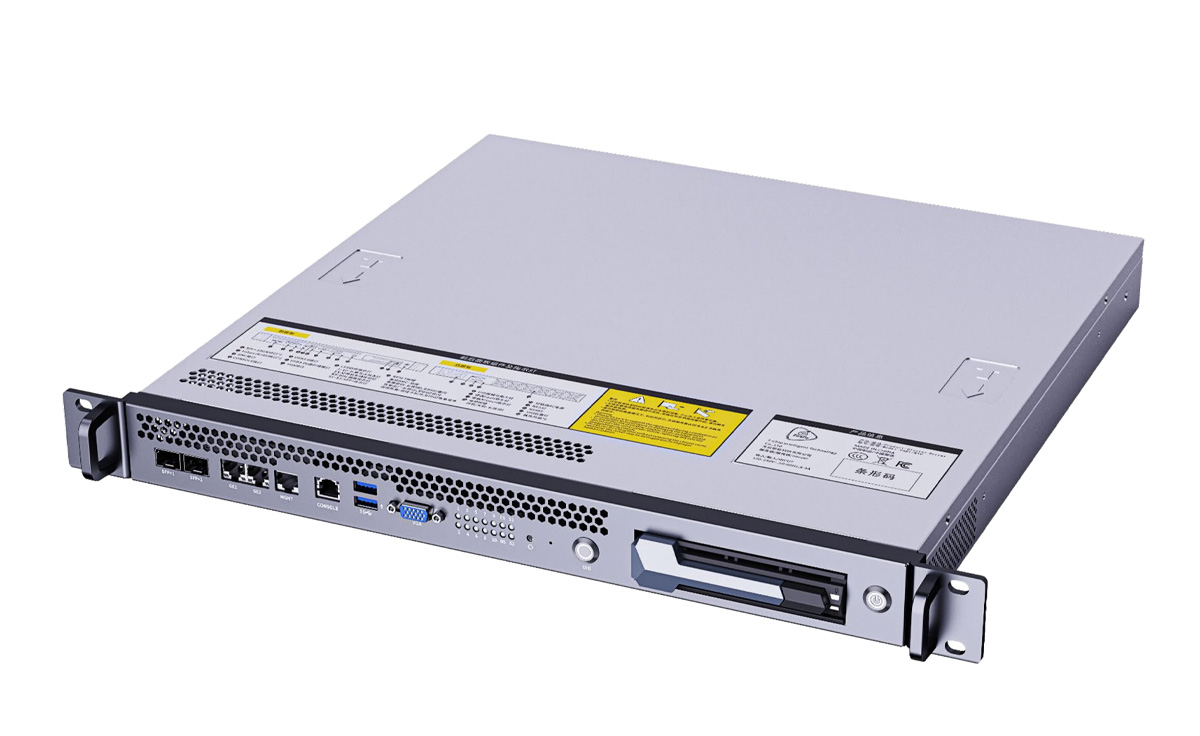The GGBEE RMW002 is a mini WiFi AC smart switch designed to make your appliances smarter. It supports a voltage range of 100-240V AC and a maximum current of 16A/20A. With built-in WiFi, the switch connects to the Cozy Life app for easy remote control of your appliances. It also supports voice commands through Amazon Alexa and Google Assistant allowing for hands-free operation. Additional features include group control, countdown timers, and dual-control wiring options. The device has very similar from-factor and features to that of a SONOFF ZBMINIR2 or SONOFF MINI Extreme (MINIR4M) but there are significant price differences if you are comparing the RMW002 to any SONOFF devices since the GGBEE switch is quite cheaper. GGBEE RMW002 specifications: SoC – Boufallo Lab BL602 32-bit RISC-V wireless SoC Connectivity – 802.11 b/g/n Wi-Fi 4 via BL602 Input Voltage range – 100-240V AC (50/60Hz) Max Current: 16A or 20A depending on […]
MNT Reform Next is an open-source, RK3588-powered modular 12.5-inch laptop (Crowdfunding)
The MNT Reform Next brings the Rockchip RK3588 processor to the modular laptop series. It retains the open-hardware nature of the older MNT Reform and introduces a lighter and more modular design, complete with a much faster processor. The MNT Reform Next separates the three port boards from the main motherboard, allowing for greater customization and modification than its predecessors. The standard processor module (RCORE) can be swapped with other modules such as the Raspberry Pi CM4, as well as NXP i.MX 8M Plus, NXP LayerScape 1028A, and AMD Kintex-7 FPGA modules. Like the classic MNT Reform and the MNT Pocket Reform, the enclosure for the Reform Next is milled from anodized, bead-blasted aluminum. Apart from being repairable and customizable, the RK3588 modular laptop is powerful enough to be a daily driver for browsing, writing, programming, gaming, graphics design, sound creation, and video editing. MNT Reform Next specifications: SoM SoC […]
vPlayer – A 1.69-inch ESP32-S3 touchscreen video display with custom expansion options
The vPlayer is an ESP32-S3 touchscreen video display that can be used for continuous MJPEG video playback from a microSD card. It features a 280 x 240 1.69-inch smartwatch-sized touchscreen display with backlight control and also offers expansion options via JST SH/SR connectors (UART, I2C, and I2S audio), and additional I/O pads on the PCB. All these features also make it suitable for applications such as weather displays, live traffic cameras, computer stats monitors, wildlife cameras, and fetching data from the Internet. vPlayer specifications: SoC – Espressif ESP32-S3 CPU – Dual-core 32-bit microcontroller @ 240MHz Memory and Storage – 4MB Flash and 2MB PSRAM Wireless – WiFi 4, Bluetooth 5.0 Storage – MicroSD card slot via MMC 4-bit interface Display – 1.69-inch touchscreen (280×240) P169H002-CTP TFT LCD ST7789V2 single-chip controller/driver CST816 touch controller Backlight control USB – 1x USB-C for power and data transfer Expansion JST SH/SR 1mm connectors for […]
ESP32-AIVoice-Z01 is an ESP32-S3 AI voice kit with dual microphones, wake word detection, noise reduction and echo cancellation
The ESP32-AIVoice-Z01 is an affordable ESP32-S3-powered AI voice kit designed for creating voice-controlled AI applications. It features Wi-Fi and Bluetooth connectivity through the ESP32-S3 SoC, a dual digital microphone array for accurate voice recognition, and an onboard amplifier. The system also implements audio algorithms for noise reduction and echo cancellation. The ESP32-AIVoice-Z01 board supports Espressif’s WakeNet voice wake-up framework and integrates with the AiLinker open-source backend service framework to enable the connection to various large AI model services like OpenAI, ZhiPu QingYan, TongYi QianWen, and DouBao. These features make this device suitable for developing AI-powered toys, IoT devices, mobile devices, and smart home applications. ESP32-AIVoice-Z01 ESP32 AI voice kit specifications Wireless module – ESP32-S3-WROOM-1U SoC – Espressif Systems ESP32-S3 dual-core Xtensa LX7 processor Memory – 8MB PSRAM Storage – 16MB flash Wireless – WiFi 4 and Bluetooth 5.0 connectivity with external antenna Storage – MicroSD card slot Audio Dual digital microphone array […]
WiFi 7 access point and client M.2 modules are cheaper than I thought
We have already seen WiFi 7 mini PCIe and M.2 modules from Compex for business customers, but I’ve recently noticed AsiaRF AW7991-AE2 M.2 module rated BE5000 offers an affordable alternative design for access points for just $58 plus shipping. But adding WiFi 7 to a consumer device can be cheaper than I expected as Intel BE200 or MediaTek MT7925-based M.2 modules can be purchased for around $20 to $30. Let’s have a look at some of the options available. AsiaRF AW7991-AE2 dual-band WiFi 7 “access point” M.2 module AsiaRF AW7991-AE2 specifications: SoC – MediaTek MT7991AV (Filogic 660?) with 32bit RISC-V MCU for Wi-Fi protocol and Wi-Fi offload Chipset – MT7976C WiFI 6 3×3 MIMO chipset System Memory – 8MB WLAN IEEE 802.11a/b/g/n/ac/ax/be compliant Frequency bands 2.4GHz – Bandwidth: 20/40MHz; 2T2R 2ss 5GHz – Bandwidth:20/40/80/160MHz; T3R 3ss Dual-Band Dual Concurrent (DBDC) Supports up to 4096-QAM Data rate of up to 688Mbps […]
SO-ARM100 is an open-source AI robotic arm kit with LeRobot integration and NVIDIA Jetson support
Seeed Studio has recently started selling the SO-ARM100 AI Robotic Arm kit, a low-cost AI arm designed for real-world robotics applications. This open-source hardware device features a 6-degree-of-freedom design with high-torque STS3215 bus servos, a 12-bit magnetic encoder for precise angle sensing, and UART for communication. The arm comes with motors, driver boards, power adapters, and other 3D-printed parts like arm segments, base, grippers, and motor mounts. Designed to work with the NVIDIA Jetson edge platform, it is ideal for grasping and placing. All these features make this device suitable for education, research, and AI-driven robotics projects. SO-ARM100 AI robotic arm kit specifications Degrees of Freedom (DOF) – 6 Motor control Total servo – 12x STS3215 bus servos Servo torque Arm kit Standard – 19.5 kg.cm @ 7.4V Arm kit pro – 30 kg.cm @ 12V (Pro) Angle Sensor – 12-bit magnetic encoder USB – USB-C for programming and testing […]
Firefly’s CSB1-N10 series AI cluster servers can deliver up to 1000 TOPS of AI power with Rockchip or NVIDIA Jetson Modules
Firefly has recently introduced the CSB1-N10 series AI cluster servers designed for applications such as natural language processing, robotics, and image generation. These 1U rack-mounted servers are ideal for data centers, private servers, and edge deployments. The servers have multiple computing nodes, featuring either energy-efficient processors (Rockchip RK3588, RK3576, or SOPHON BM1688) or high-performance NVIDIA Jetson modules (Orin Nano, Orin NX). With 60 to 1000 TOPS AI power, the CSB1-N10 servers can handle the demands of large AI models, including language models like Gemma-2B and Llama3, as well as visual models like EfficientVIT and Stable Diffusion. CSB1-N10 series specifications All CSB1-N10 AI servers have the same interfaces, and the only differences are the CPU, memory, storage, multimedia, AI capabilities, and related software support. So it’s likely Firefly has made Rockchip system-on-modules compatible with NVIDIA Jetson SO-DIMM form factor, and indeed we previously noted that Firefly designed Core-1688JD4, Core-3576JD4, or Core-3588JD4 […]
Murata Type 2FR is the world’s smallest tri-radio IoT module with Wi-Fi 6, Bluetooth 5.4, and Thread connectivity
Murata has recently launched the world’s smallest tri-radio IoT modules, the Type 2FR/2FP series, as well as the Type 2KL/2LL series for hosted solutions. These compact modules feature tri-radio communication, including Wi-Fi 6, Bluetooth 5.4, and Thread, with Matter provisioning for interoperability. The 2FR/2FP series is considered the world’s smallest module (12.0 x 11.0 x 1.5mm) of this type with a built-in MCU, making it ideal for low-cost and highly integrated solutions. It prioritizes security with the latest cybersecurity standards and compatibility with the Matter ecosystem. On the other hand, the 2KL/2LL series is designed to work with high-performance processors running Linux or RTOS. These modules provide reliable tri-radio communication with advanced capabilities. Both series are designed for applications, including smart homes, buildings, industrial automation, healthcare, and more, with features like low-power operation, extended battery life, and reduced component count. Murata Type 2FR/2FP modules specifications: MCU – NXP RW610 or RW612 […]


